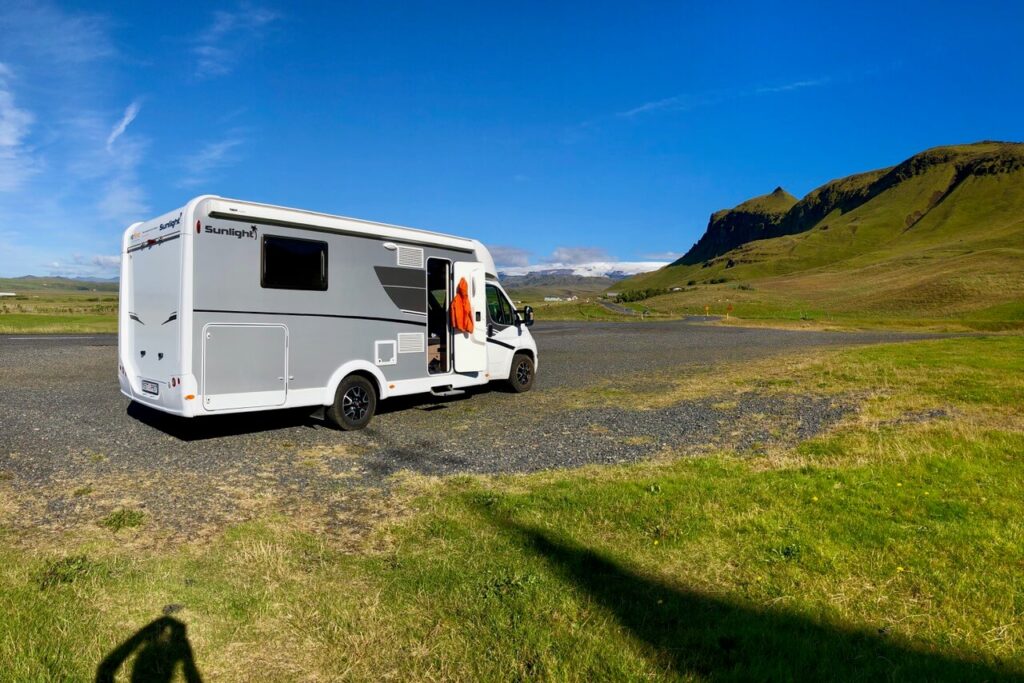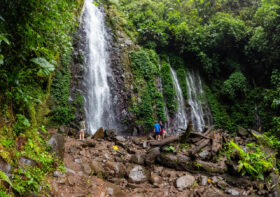Tips for booking a Campervan/motorhome rental in Iceland
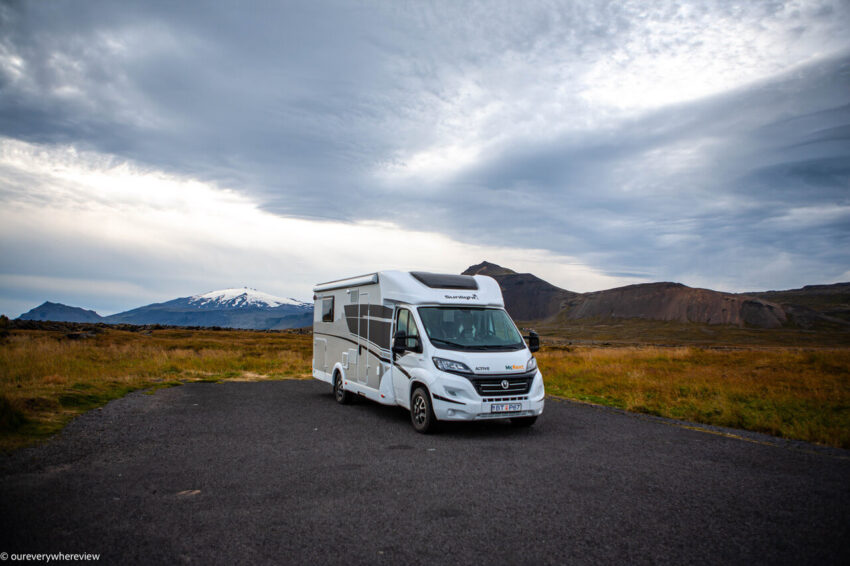
Traveling and camping in Iceland is a unique and incredible experience. We are not campers (and have never camped as a family in our native country!) But you don’t need to love camping to love camping in Iceland.
We rented a motorhome for our two week trip to Iceland. With two young kids. Having never done it before. (With another family of four who rented a separate motorhome, also never having done it before.) And it was really the *best* decision we could have made.
Iceland is one of the best and most popular countries to camp. It has a thriving Campervan scene, with a plethora of rental companies and an overwhelming number of things to consider, especially if you’ve never rented a camping vehicle before. After pursuing numerous websites, travel reviews, travel blogs, and watching endless videos, we eventually distilled what might work best for us. We were total newbies when we started out, and our trip turned out even better than we imagined! We hope to share some of the tips we’ve collected along the way to help you make the most of your rental booking.
Be sure to check our out post on our guide for traveling through Iceland by motorhome (for families and first-timers, but not *only* for families and first-timers!)
Note on Motorhome vs RV:
In many of our other Iceland articles, you’ll see us referring to our motorhome as a “RV” (recreational vehicle), which we tend to use interchangeably here in Canada.
For our Iceland trip, we rented a “motorhome”, as technically RVs also include campervans and trailers and the like, which are really entirely different categories of camping vehicles as we’ll discuss below.
But you’ll still find us using “motorhome” and “RV” interchangeably, even though we really mean “motorhome”. We’re so used to it, and RV is so much shorter!
Why choose camping in Iceland?
We are not campers (did I say that already?) but Iceland is really the perfect country to try camping with your family. Why?
– Iceland is an extremely camping friendly country. The campsites are plentiful, never full, well run, and have absolutely fantastic amenities.
– Camping in Iceland adds to the experience. Many of the campsites are in national parks, with incredible views and nature to experience.
– Camping in Iceland is a great way to meet like-minded travellers. I struck up numerous conversations simply by doing dishes side-by-side with other campers!
– Camping is kid friendly! I can’t count the number of times we’d only just pulled into the campsite before the kids were out of the van and running around the site. We could be cooking or relaxing/planning for the day, and the kids would be outside on the playground, playing tag, throwing a ball or Frisbee, or climbing something (I don’t know how kids just *find* things to climb.)
– It allows more flexibility/less stress when planning and sticking to your itinerary. Unlike hotels, campsites in Iceland cannot be booked in advance. If you don’t quite make it to your planned site for the night or don’t know where you want to stay, simply Google “campsites” and look for a site near you.
– Camping in Iceland is cheaper than staying in hotels. Yes, you’ll pay more in gas. If you’re renting a camper van (or tent camping), it’s usually quite a bit cheaper than staying in hotels. Renting a motorhome is considerably more expensive and likely won’t save you that much more. However, you will save a TON of money buying groceries and preparing your own meals in your vehicle.
– Having your bed and kitchen with you at all times is convenient, especially with kids. You can pull over any time for a snack, a meal, or a nap. It’s also a handy place to hide out for those rainy spells that are guaranteed on your Iceland trip.
– Lots of activities at your kids’ fingertips for those long hours on the road. In a motorhome, the kids/extra seats are normally at the dinette, which gave our kids plenty of space to draw, read, play with toys, or whatever kept them occupied.
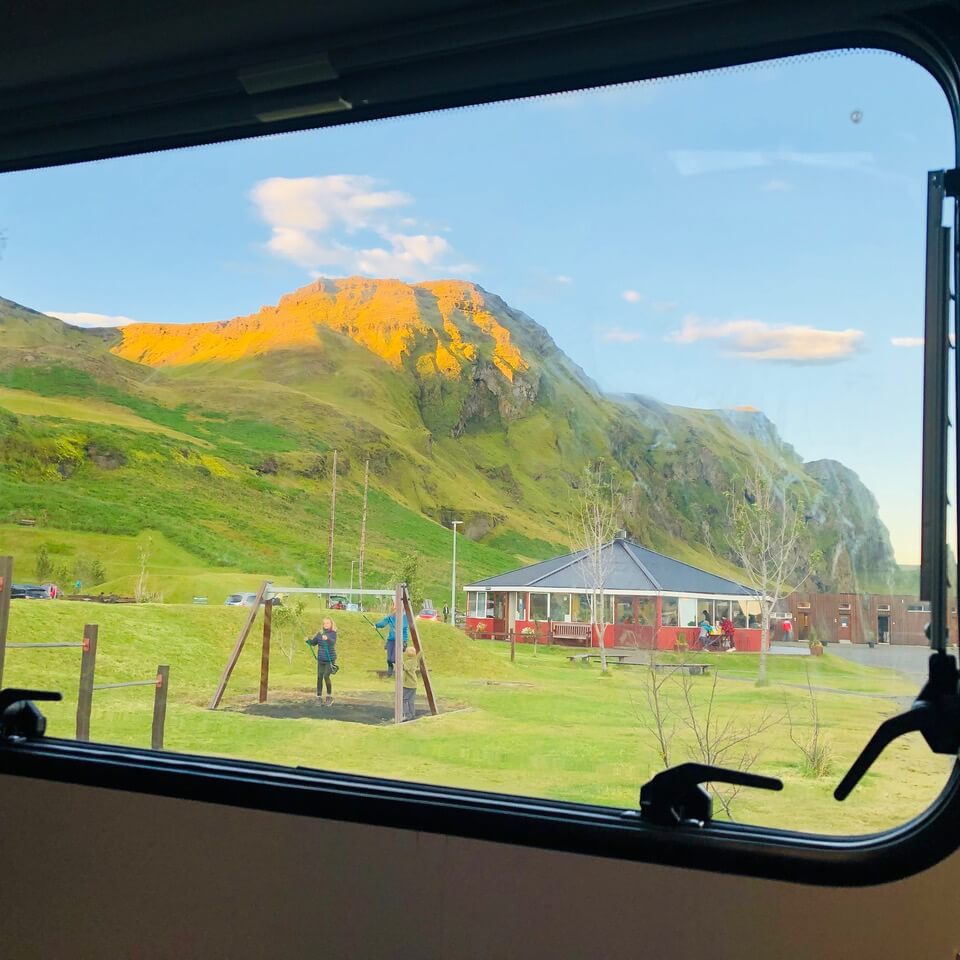
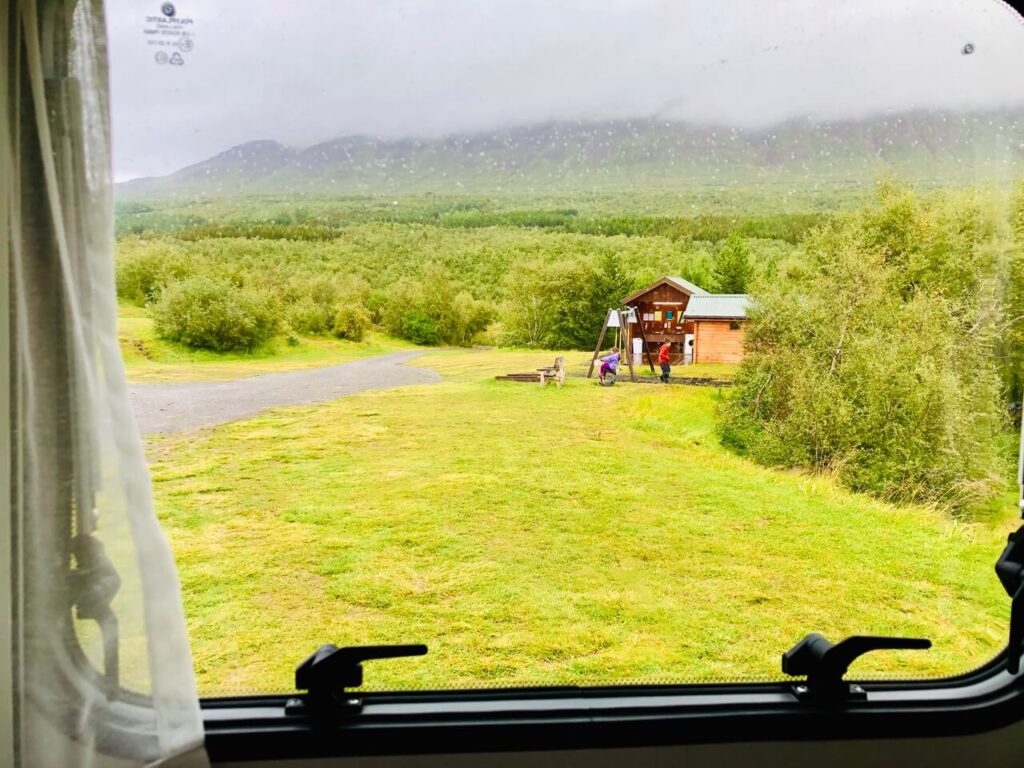
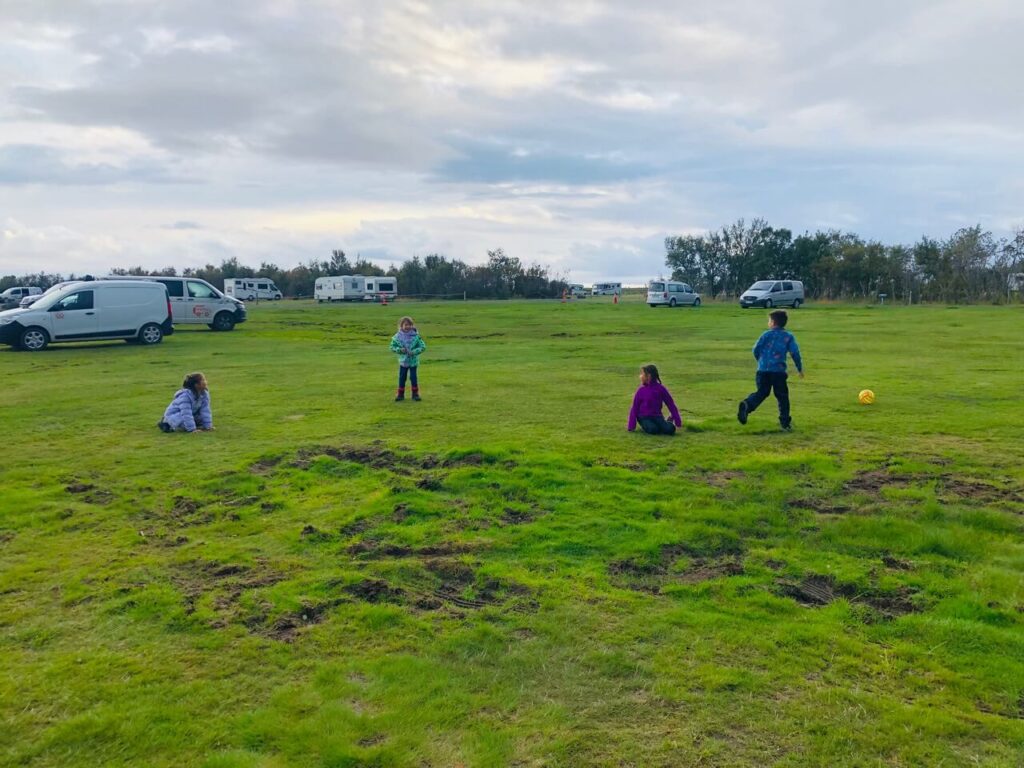
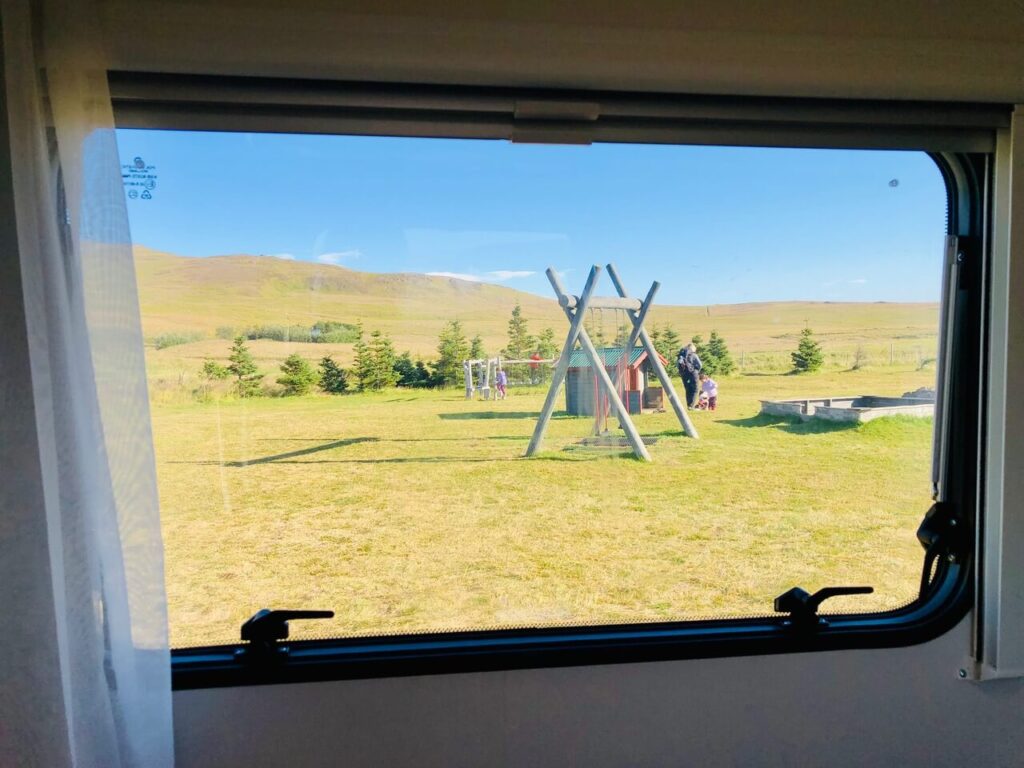
When to consider camping in Iceland?
I would definitely recommend sticking to the warmer months – from about June to September, especially if you’re an inexperienced camper or are traveling with kids.
This is mainly because of the weather. Iceland’s weather fluctuates wildly even in the best of times. Once the days start cooling, nighttimes will feel like below freezing in your vehicle. Road safety also becomes an issue once the roads start icing over. Winter tires with chains are a must, and most camper vans and motorhomes are not equipped to handle icy conditions.
Choosing your vehicle type
Decided to try camping in Iceland? Good choice! Do not be put off by the overwhelming number of choices when you start your research.
There are two main types of camping vehicles available to rent in Iceland. (We’re not even going to talk about tent camping. Even the local Icelander I spoke with while we were horse riding consider people who tent camp in Iceland to be crazy.) Campervans, and motorhomes.
Campervan vs motorhome
We don’t see many campervans in North America. In essence, it’s a large van that has been retrofitted to allow for living space. Most campervans have a bed or bunk bed that can sleep 2-4, a small kitchenette with an icebox, water tank, and stove, and usually a table that pulls or folds out.
Motorhomes, on the other hand, really are tiny mobile homes. They usually can sleep 4, but I think we saw a configuration for maximum 6! In addition to a well-defined bedroom, dining area, and kitchen, motorhomes have refrigerators and bathrooms, including toilet and shower.
We looked at a variety of options, but ultimately ended up choosing a motorhome to rent, *largely* because of the toilet. Kids (and sometimes husbands) need to use the bathroom all the time, and we didn’t want to spend all our time looking for and stopping at restrooms! We found the fridge, increased storage space, and generally increased liveable space key to our wellbeing as well.
If we didn’t have kids, we would have chosen to rent a camper van. Motorhomes are significantly more expensive (we paid nearly double the price for our motorhome), and only a few companies in Iceland carry them. Motorhomes are also larger and more difficult to maneuver on the road (and finding parking in Reykjavik can be nearly impossible!) We did see a number of families with kids who rented campervans, so it can definitely be done. (We just like to avoid self-inflicting punishment if we can help it… 😉
Off-roading capabilities
The other consideration is whether you want to rent a vehicle/4×4 with off-roading capabilities. There are many roads in Iceland that are restricted to off-roading vehicles only (“f-roads”), particularly in Iceland’s interior highlands and Westfjords. If you want to go to these places, you need an off-roading vehicle. Some campervans are 4x4s, but most off-roading vehicles are trucks or jeeps with tents hoisted on the roof. These generally sleep a maximum of 3. Motorhomes are not off-roading vehicles. (We did see one that looked like a bus with monstrous wheels at one of the campsites. This unicorn exists, but I have no idea what it’s called or where to rent it.)
Iceland’s Golden Circle and Ring Road are all fully navigable and manageable in a regular vehicle.
Choosing your rental agency
For campervan rentals, there are a *lot* of companies to choose from. The most common vans we saw on the road were:
Happy Campers (we loved the bright colours!) – https://happycampers.is
GoCampers – https://www.gocampers.is
Kuku Campers – https://www.kukucampers.is
These companies are all local Icelandic companies, and among our top contenders when we were looking around at camper vans. The services and vans offered by these companies are all quite similar, as are the insurance and extra options. Ultimately, I think it comes down to which company has a vibe most similar to your travel style. My gestalt is Kuku Campers is more geared for younger travellers, whereas Happy Campers is more of a local/family vibe.
There are a number of other international rental companies, such as Indie Campers, as well as companies that use local partners, such as Campervan Iceland. We recommend supporting local, and booking directly with the companies themselves, as opposed to through a third party.
There are far fewer motorhome rental companies in Iceland. Most bookings are done via third-party sites or international rental agencies that have a base in Iceland. Some car rental companies offer motorhome rentals (such as Europcar), but only have their rentals available on third-party websites. Most of the time, you can only select and book a certain configuration (ie. number of passengers and beds). There is no guarantee the RV that is available for you will be the one you see in the photos.
McRent Iceland was the most common motorhome we saw in Iceland. We did end up using McRent, and found they had a large fleet of vehicles to choose from. Communication was prompt and the rental process was smooth. Perhaps not the most personal experience, but we had no issues with them.
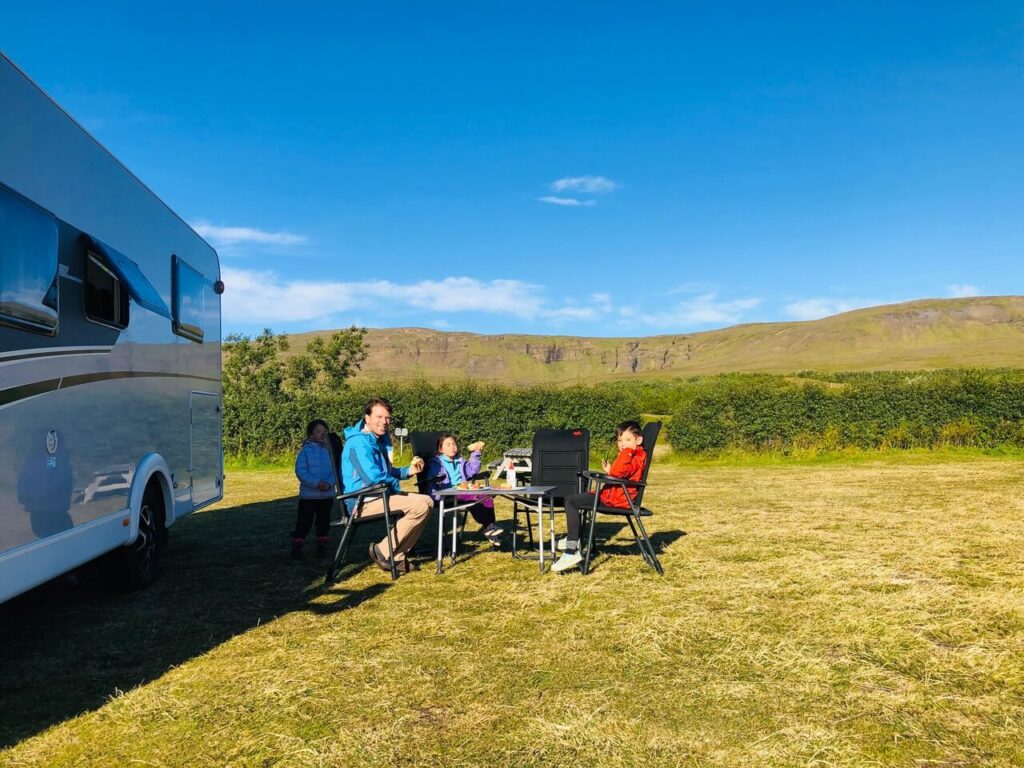
Buying insurance
There are many types of insurances available for your rental campervan/motorhome. These generally include:
- Collision Damage Waiver (if you were involved in an accident)
- Gravel protection and sand/ash protection (basically damage done by something flying up from the road and hitting your car)
- Tire protection (any problems with your tires)
Our recommendation? Get everything. (And I almost *never* say this.) Iceland’s terrain and weather means there is a high chance of *something* happening to your car. For many companies you can get the insurance bundled for 35-40 euros. This is around 500 euros for 2 weeks. For comparison, our vehicle was found to have 2 cracks in the rear bumper (and we have *no* idea how it happened), which would have been over 800 euros to replace! Motorhomes are also difficult to maneuver, and our friends experienced a minor incident in a parking lot. And the number of stories we heard on the road about cracked windshields or even car doors flying off from wind! Buying the extra insurance upfront will save you a lot of anxiety on your trip.
You don’t need to buy this when booking your vehicle. You can have it added when you pick up your vehicle.
Picking extras
There are a lot of add-ons you can choose from to enhance your RV experience. Again, you don’t *have* to select these while booking. However, if you add extras on the spot, there’s a chance certain things may not be available. There’s a bit of an overwhelming variety, so we’ll mention the ones we feel are essential, and ones that may be good to have if you can swing it.
Ultimately, you might find yourself booking with a company based on which perks they’ll include free of charge. Keep in mind you don’t need to buy your extras with the rental company. You can always bring your own or rent/buy elsewhere in Iceland (eg. some kiosks at the airport).
Vehicle features:
These are not really extras, but I strongly suggest looking for a vehicle with these feature listed.
– Mileage: ideally, you want to choose a RV with unlimited mileage. Some vehicles will have a daily mileage limit with an overcharge if you exceed that. Depending on where you’re planning to go, this may end up being an expensive proposition. For an idea, the Ring Road around Iceland is approximately 1300 km.
– HEAT: For us, this was a must. Even in the summer, nighttime temperatures can drop to freezing. It’s not so bad once you’re under the covers, but getting ready for bed and getting up in the morning can get pretty darn uncomfortable. As adults, we would have toughed it out, but the kids were much happier getting out of bed if we turned the heat on before they got up. Heating uses gas, so we definitely didn’t keep it on all night.
Essential extras:
– Inverter. This is hands down the number one extra you need to get. An inverter looks like a brick that plugs into your cigarette lighter, and turns your car battery’s DC current into AC current, which can be used to power *aaaaall* your gear. You can use it when you’re driving, to charge your phone, tablets, laptops, camera batteries, (and in our case) kids speaker for blasting Disney songs. You might have one or two USB ports in your motorhome, but that is not nearly enough for all the travel gear you’ll undoubtedly have with you. We brought our own, because it was cheap to buy and easy to pack.
– Bedding. You can rent pillows, sheets, and duvets for your RV. This is usually around 50 Euros per person. We brought our kids’ sleeping bags and camping pillows, and rented bedding for ourselves. (We took carry on only, and could not accommodate more sleeping bags.) An alternative is to stop by the IKEA in Reykjavik – it’s right by the highway on the way to Thingvellir – and purchase your own bedding. This is cheaper, but more effort.
– Gas canisters. Check how many canisters your rental includes, and whether they will add extras. (Ie. Happy Camper will provide multiple free canisters.) The gas for our motorhome was used for hot water, the stove, to run the fridge when the engine is off, and heat. Filling up one can at the gas station costs about 8000 ISK (80 CAD).
– Router. Or at least, Data/WIFI access. Actually, if given the option to redo, Daniel says he would not have rented a router. It would have been cheaper on the whole to purchase SIM cards for our phones, as opposed to having to continually buy more data when we ran out.
Extras to consider:
– Portable table and camping chairs. There are not very many sunny days in Iceland. When there is, you definitely want to take advantage of it by taking your meals outdoors. McRent threw our set in for free. We did not feel the need to add a BBQ, as we could make everything we needed in our kitchen.
Tips for booking your vehicle
Book early!
We recommend booking your camping vehicle as soon as you’ve confirmed your travel plans. As it gets closer to your travel date, the cost of rentals go way up, and the selection of vehicles go way down. This is especially true for motorhomes, where there is a slim selection to begin with. We booked about four months in advance. Our friends who booked around two months before the trip paid over double our price and were nearly out of luck finding an available motorhome.
Confirm the rental company’s operating hours
If you have a flight that leaves earlier in the morning, you may need to return your vehicle the day before, which means you will need to stay in a hotel for your final night. (We had to do this.) Some companies, such as Happy Camper, offers the option to pick up and return your vehicle at all hours of the day.
Confirm if you have the option to check in early or drop off late
Some companies will charge a full day rate (ours did) if you drop off later in the day then when you picked up.
Reach out to the company with any questions
This not only gives you answers, but a good feel on how the company communicates and how receptive and friendly the staff are. You don’t want to be stuck on some remote Icelandic road with a broken down vehicle and no one responding!
Hopefully we’ve convinced you that camping in Iceland is a fantastic idea, and that booking your Campervan or motorhome isn’t actually such a daunting task. (If you were a total newbie like us – now you’re well on your way to being initiated!)
If you’re planning a trip to Iceland, don’t forget to check out our other Iceland travel articles!
